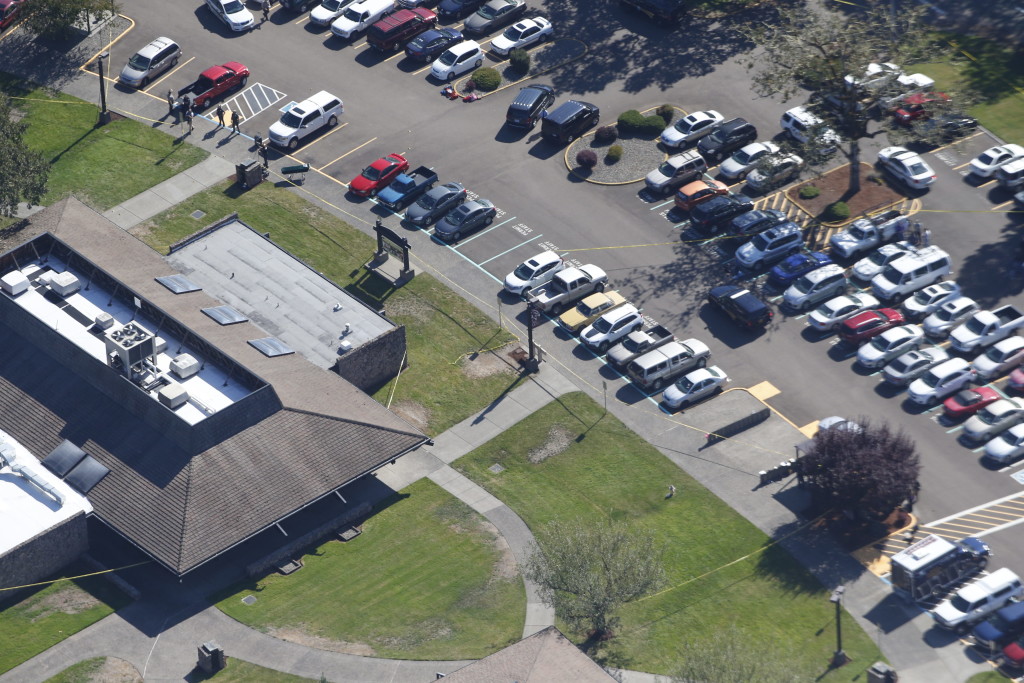Just some of the text from the website: A global network of local authorities united in building resilience to prevent violent extremism. The Strong Cities Network aims to connect cities and other local authorities on an international basis, to enhance local level approaches to prevent violent extremism; including facilitating information sharing, mutual learning and creation of new and innovative local practices. Find out more about the Strong Cities Network strategic objectives below.
The ‘Strong Cities Network’ (SCN) has been created to achieve a focused and rapid exchange of ideas and methods to strengthen the safety, security and cohesion of communities and cities. The Strong Cities Network will connect cities and local authority practitioners through practical workshops, training seminars and sustained city partnerships.
Strong Cities Network member cities will also contribute to, and benefit from, an ‘Online Information Hub’ of municipal-level good practices and web-based training modules, as well as ‘City-to-City Exchanges’. Strong Cities Network member cities will be eligible for grants supporting new innovative pilot projects. Click here to learn more and then start asking some hard questions.
Why be concerned? The U.S, Attorney General, Loretta Lynch joined Vice President Joe Biden at the United Nations this week to introduce this global objective. There has been such chatter and fear about United Nations interference into American culture especially with regard to an outside power and authority where America’s sovereignty continues to fade away. Now we could have real cause for that concern. Read on…none of this is in our best interest.
The United States has hundreds of thousands of people in powerful positions and advanced technology where profiling must be considered and to cure ‘violent extremism’ we go global for solutions? Heck global is part of the cause.
Launch of Strong Cities Network to Strengthen Community Resilience Against Violent Extremism
Cities are vital partners in international efforts to build social cohesion and resilience to violent extremism. Local communities and authorities are the most credible and persuasive voices to challenge violent extremism in all of its forms and manifestations in their local contexts. While many cities and local authorities are developing innovative responses to address this challenge, no systematic efforts are in place to share experiences, pool resources and build a community of cities to inspire local action on a global scale.
“The Strong Cities Network will serve as a vital tool to strengthen capacity-building and improve collaboration,” said Attorney General Loretta E. Lynch. “As we continue to counter a range of domestic and global terror threats, this innovative platform will enable cities to learn from one another, to develop best practices and to build social cohesion and community resilience here at home and around the world.”
The Strong Cities Network (SCN) – which launches September 29th at the United Nations – will empower municipal bodies to fill this gap while working with civil society and safeguarding the rights of local citizens and communities.
The SCN will strengthen strategic planning and practices to address violent extremism in all its forms by fostering collaboration among cities, municipalities and other sub-national authorities.
“To counter violent extremism we need determined action at all levels of governance,” said Governing Mayor Stian Berger Røsland of Oslo while commenting on their participation in the SCN. “To succeed, we must coordinate our efforts and cooperate across borders. The Strong Cities Network will enable cities across the globe pool our resources, knowledge and best practices together and thus leave us standing stronger in the fight against one of the greatest threats to modern society.”
The SCN will connect cities, city-level practitioners and the communities they represent through a series of workshops, trainings and sustained city partnerships. Network participants will also contribute to and benefit from an online repository of municipal-level good practices and web-based training modules and will be eligible for grants supporting innovative, local initiatives and strategies that will contribute to building social cohesion and resilience to violent extremism.
The SCN will include an International Steering Committee of approximately 25 cities and other sub-national entities from different regions that will provide the SCN with its strategic direction. The SCN will also convene an International Advisory Board, which includes representatives from relevant city-focused networks, to help ensure SCN builds upon their work. It will be run by the Institute for Strategic Dialogue (ISD), a leading international “think-and-do” tank with a long-standing track record of working to prevent violent extremism:
“The SCN provides a unique new opportunity to apply our collective lessons in preventing violent extremism in support of local communities and authorities around the world”, said CEO Sasha Havlicek of ISD. “We look forward to developing this international platform for joint innovation to impact this pressing challenge.”
“It is with great conviction that Montréal has agreed to join the Strong Cities Network founders,” said the Honorable Mayor Denis Coderre of Montreal. “This global network is designed to build on community-based approaches to address violent extremism, promote openness and vigilance and expand upon local initiatives like Montréal’s Mayors’ International Observatory on Living Together. I am delighted that through the Strong Cities Network, the City of Montréal will more actively share information and best practices with a global network of leaders on critical issues facing our communities.”
The Strong Cities Network will launch on Sept. 29, from 4:00 p.m. to 5:30 p.m. EDT, following the Leaders’ Summit on Countering ISIL and Violent Extremism. Welcoming remarks will be offered by the United Nations High Commissioner for Human Rights, Prince Zeid Ra’ad Al Hussein and Mayor Bill de Blasio of New York City, who will also introduce a Keynote address by U.S. Attorney General Lynch. Following this event, the Strong Cities International Steering Committee, consisting of approximately 25 mayors and other leaders from cities and other sub-national entities from around the globe, will hold its inaugural meeting on Sept. 30, 2015, from 9:00 a.m. to 4:00 p.m. EDT.


